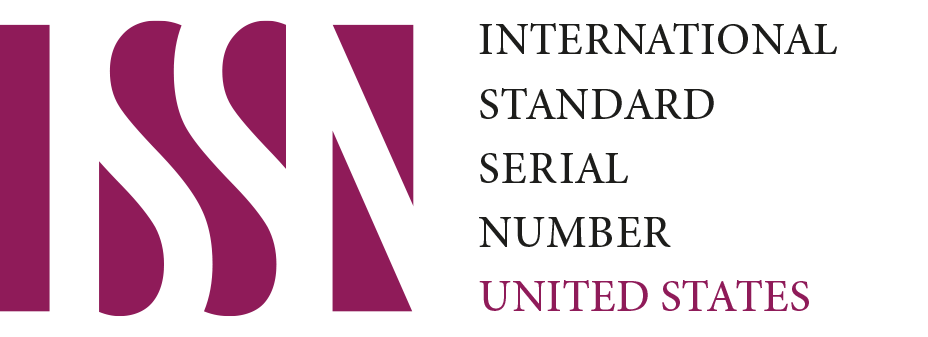The Effect of Learning Interest and Learning Discipline on Student Learning Outcomes in Informatics Class X SMA Negeri 8 Pontianak
DOI:
https://doi.org/10.61404/jimi.v2i4.273Keywords:
Learning Interest, Learning Discipline, Learning Outcomes, InformaticsAbstract
The world of education is currently developing, various kinds of innovation and renewal are carried out to improve the quality and quantity of education. Various breakthroughs have also been made both in curriculum development, learning innovation, and the provision of educational facilities and infrastructure needed to improve the quality of education itself. The method used in this study is a quantitative descriptive method with an Ex Post Facto approach. The population of this study is class X students of SMA Negeri 8 Pontianak for the 2023/2024 school year.The data collection techniques in this article are direct communication techniques and also use questionnaires. The validity test of the instrument is used to assess whether the instrument can accurately disclose the data of the variable being studied. The validity of the content and construct was assessed through expert assessment by three validators, consisting of two IT lecturers and one Informatics teacher, to evaluate the suitability of the questionnaire about learning interests and learning disciplines. The data from this research includes information about students of SMA Negeri 8 Pontianak class XA, XB, XC, XD, XE, XF, XG, XH, XI which amounted to 322 students who had previously been observed, this was done to find out the problems at SMA Negeri 8 Pontianak before a study was conducted. The research carried out included one bound variable, namely Learning Outcome (Y), and two independent variables, namely Learning Interest (X1) and Learning Discipline (X2) Variable Data for X1 and X2 was obtained from a questionnaire with a likert scale answer model of 4 (four) alternative answers that were distributed according to the sample needs to 167 students who were the research sample.
Downloads
References
Ariga, Selamat. “Implementasi Kurikulum Merdeka Pasca Pandemi Covid-19.” Edu Society: Jurnal Pendidikan, Ilmu Sosial dan Pengabdian Kepada Masyarakat 2, no. 2 (2022): 662–670. https://jurnal.permapendis-sumut.org/index.php/edusociety/article/view/225.
Aryanti, Dwi, dan M. Indra Saputra. “Penerapan Kurikulum Merdeka sebagai Upaya dalam Mengatasi Krisis Pembelajaran (Learning Loss).” Educatio: Jurnal Ilmu Kependidikan 18, no. 1 (2023): 17–31. https://e-journal.hamzanwadi.ac.id/index.php/edc/article/view/12286.
Asmara, Arya Van, Umum Budi Karyanto, Santika Lya Diah Pramesti, dan Hana Nisrina. “Pengaruh Pemanfaatan Media E-Learning dan Minat Belajar Matematika terhadap Hasil Belajar Matematika Siswa Kelas X di SMA Negeri 1 Wonotunggal.” In Seminar Nasional Tadris Matematika (Santika): “Computational Thinking Dan Literasi Matematika Dalam Tantangan Asesmen Nasional,” 1:21–43. Pekalongan: Universitas Islam Negeri K.H. Abdurrahman Wahid, 2021. https://proceeding.uingusdur.ac.id/index.php/santika/article/view/333.
Baartman, Liesbeth K.J., dan Elly de Bruijn. “Integrating Knowledge, Skills and Attitudes: Conceptualising Learning Processes Towards Vocational Competence.” Educational Research Review 6, no. 2 (2011): 125–134. https://www.sciencedirect.com/science/article/abs/pii/S1747938X11000145?via%3Dihub.
Buckingham, David. “Guest Editorial: The Success and Failure of Media Education.” MERJ: Media Education Research Journal 4, no. 2 (2014): 5–18. chrome-extension://efaidnbmnnnibpcajpcglclefindmkaj/https://merj.info/wp-content/uploads/2014/01/MERJ_4-2-Editorial.pdf.
Hendra, Dus, dan Rijal Abdullah. “Pengaruh Disiplin Belajar terhadap Hasil Belajar pada Mata Diklat Gambar Teknik Siswa Kelas XI Jurusam Teknik Gambar Bangunan di SMK Negeri 2 Kota Solok.” CIVED: Journal Of Civil Engineering And Vocation Edution 5, no. 4 (2018): 1–9. https://ejournal.unp.ac.id/index.php/cived/article/view/102477.
Kubberød, Elin, Siw M. Fosstenløkken, dan Per Olav Erstad. “Peer Mentoring in Entrepreneurship Education: Towards a Role Typology.” Emerald Insight: Discover Journals, Books and Case Studies 60, no. 9 (2018): 1026–1040. https://www.emerald.com/insight/content/doi/10.1108/ET-08-2017-0109/full/html.
Nadhirin. “Values Based Superior Students’ Learning Behaviour.” ADDIN: Media Dialektika Ilmu Islam 12, no. 1 (2018): 133–162. https://journal.iainkudus.ac.id/index.php/Addin/article/view/3592.
Prastika, Yolanda Dwi. “Pengaruh Minat Belajar Siswa terhadap Hasil Belajar Matematika Siswa SMK Yadika Bandar Lampung.” Jurnal Ilmiah Matematika Realistik 1, no. 2 (2020): 17–22. https://jim.teknokrat.ac.id/index.php/pendidikanmatematika/article/view/519.
Sari, Yemima Intan, dan Osly Usman. “Effect of Learning Ability, Time Efficiency, Learning Motivation and Discipline of Students’ Time on Interests of Use of E-Learning.” SSRN Electronic Journal (2019): 1–18. https://papers.ssrn.com/sol3/papers.cfm?abstract_id=3512042.
SÜRÜCÜ, Lütfi, dan Ahmet MASLAKÇI. “Validity and Reliability in Quantitative Research.” Business and Management Studies: an International Journal 8, no. 3 (2020): 2694–2726. https://www.bmij.org/index.php/1/article/view/1540.
Zaluchu, Sonny Eli. “Strategi Penelitian Kualitatif dan Kuantitatif di dalam Penelitian Agama.” Evangelikal: Jurnal Teologi Injili dan Pembinaan Warga Jemaat 4, no. 1 (2020): 28–38. https://journal.sttsimpson.ac.id/index.php/EJTI/article/view/167.
Downloads
Published
How to Cite
Issue
Section
License
Copyright (c) 2024 Dewi Sulistiyarini Ismaya, Ferry Marlianto, April Hepytasa, Siti Munfarida, Nadya Aulia, Agustinus Alan Dwitama Putra, Kelvian Nandus Tijak, Estikrilasa

This work is licensed under a Creative Commons Attribution-ShareAlike 4.0 International License.













